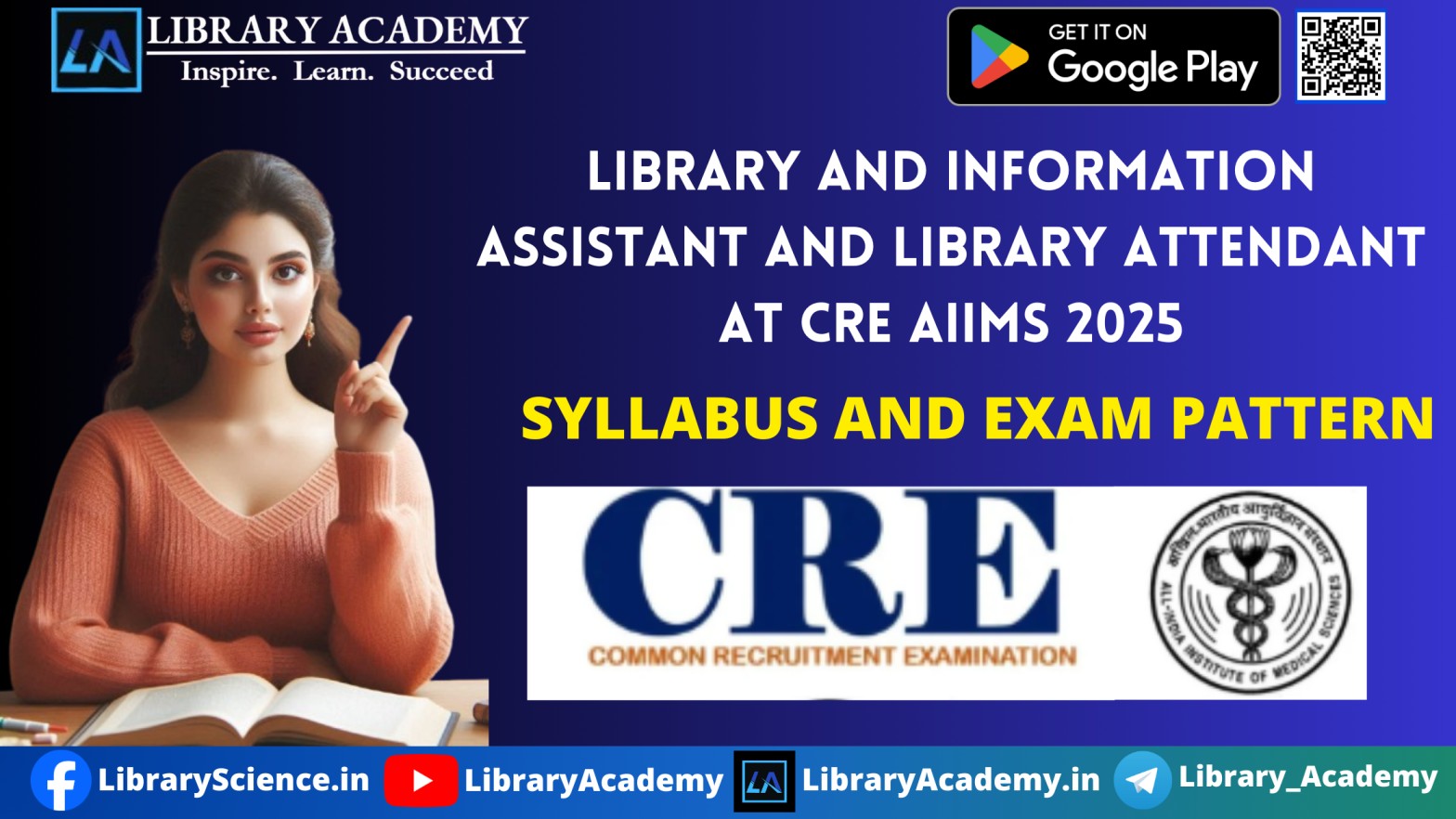Exam Pattern for Common Recruitment Examination (CRE-2024) for Library Attendant Gr. II and Librarian Grade III/Library and Information Assistant/Library and Information Assistant(Grade III) Recruitment 2025.
1. Examination Format
- Type of Test: Computer-Based Test (CBT).
- Duration: 90 minutes.
- Total Questions: 100 MCQs.
- Marks Distribution:
- 4 marks for each correct answer.
- Negative marking: Deduction of 1 mark for each wrong answer.
- Sections and Question Distribution:
- 25 MCQs: General Knowledge & Aptitude, Knowledge of Computers.
- 75 MCQs: Domain-specific knowledge based on the qualifications and job requirements.
- Medium of Examination:
- English for positions requiring higher qualifications or technical expertise.
- English and Hindi for positions requiring matriculation/10+2 level qualifications.
2. Sectional Time Limit:
- Exam divided into 5 sections, each of 18 minutes duration.
- Questions from a section cannot be revisited once the time for that section lapses.
3. Qualifying Marks:
- UR/EWS: 40%.
- OBC: 35%.
- SC/ST: 30%.
- PWBD (all categories): 30%.
4. Skill Test:
- Applicable for specific posts (details to be published later).
- Skill Test is qualifying in nature, and final merit will be based on CBT scores.
Exam Syllabus
General Knowledge & Aptitude (25 Questions):
- Current Affairs.
- General Science and Technology.
- Basic Mathematical Skills (Arithmetic, Algebra).
- Logical Reasoning and Analytical Ability.
- General Awareness about Government Schemes and Policies.
Knowledge of Computers (25 Questions):
- Basics of Computer Applications.
- MS Office Suite (Word, Excel, PowerPoint).
- Internet Usage and Email Etiquette.
- Fundamentals of Operating Systems.
Domain-Specific Knowledge (75 Questions):
Based on the educational qualifications and requirements for the post. For Library-related posts:
Library Attendant Grade II:
- Fundamentals of Library Science.
- Basic Library Terminology.
- Shelving, Cataloging, and Circulation Processes.
Librarian Grade III/Library and Information Assistant:
- Library Science and Information Management principles.
- Cataloging and Classification Standards (e.g., AACR2, MARC).
- Digital Libraries and e-Resources.
- Library Automation and Software Tools (e.g., Koha, DSpace).
- Research Methods in Library Science.
Let me know if you’d like further clarifications or additional details!


1 thought on “AIIMS Library Attendant Library and Information Assistant Syllabus and Exam Pattern”
Comments are closed.